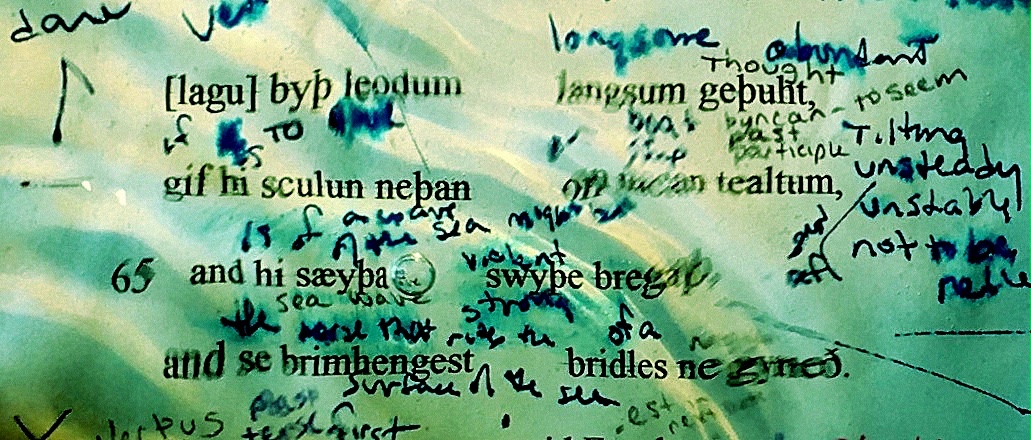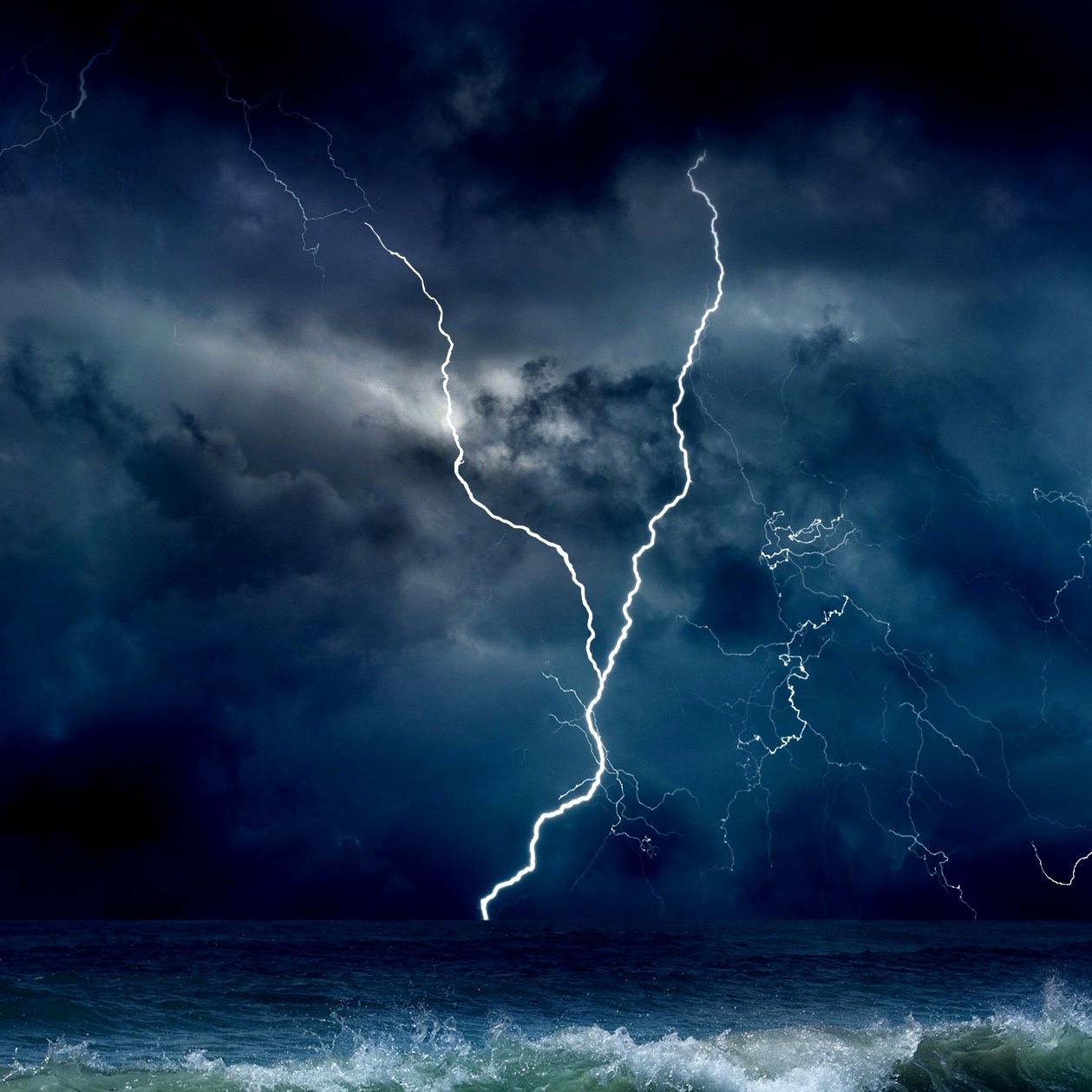 Waterways were busy places during the time of the Rune Poem, making for convenient connections between coastal settlements and with ports of trade farther afield. However, things become a lot less easy when the sea won’t cooperate. The whole endeavor becomes as the stanza says, langsum, longsome, long lasting, lengthy. This also means tedious, as in when is this boat going to stop pitching endlessly in these waves? Langsum, that’s when. You’ll be riding this out for a good long while, and langsum geþuht (longsome thought) means it seems even longer. Time slows down when you are scared and in your head, and this is scary. The boat is tealtum, unsteady, and it’s not a big ship. You are right there in the soup and you will feel every one of those sæyþa (waves) coming at you. They are swyþe, strong and violent, and frightening too. Bregaþ says it’s frightening, as I’m sure you can imagine, when the sea is swelling and pitching so much you lose all control of your boat. Now you are at the water’s mercy. How scared are you? Bregd means a quick movement, bregdan means the same but it also means to draw breath, bregdnes means a sudden terror that takes your breath away. You are not just mildly fearful about the situation, no, you are terrified, breathing shallow and fast, shocked alert and responding to quick changes of the sea as it flings you in every direction simultaneously, but there is exactly nothing you can do. You have no control in this situation. Leave all thought of being a hero now, you should be terrified. The ocean is a dangerous place. Arranged in their three rows of eight stanzas, the rune for sea sits just above the one for the grave. Just under the waves lies a cemetery, and soon it may be yours.
Waterways were busy places during the time of the Rune Poem, making for convenient connections between coastal settlements and with ports of trade farther afield. However, things become a lot less easy when the sea won’t cooperate. The whole endeavor becomes as the stanza says, langsum, longsome, long lasting, lengthy. This also means tedious, as in when is this boat going to stop pitching endlessly in these waves? Langsum, that’s when. You’ll be riding this out for a good long while, and langsum geþuht (longsome thought) means it seems even longer. Time slows down when you are scared and in your head, and this is scary. The boat is tealtum, unsteady, and it’s not a big ship. You are right there in the soup and you will feel every one of those sæyþa (waves) coming at you. They are swyþe, strong and violent, and frightening too. Bregaþ says it’s frightening, as I’m sure you can imagine, when the sea is swelling and pitching so much you lose all control of your boat. Now you are at the water’s mercy. How scared are you? Bregd means a quick movement, bregdan means the same but it also means to draw breath, bregdnes means a sudden terror that takes your breath away. You are not just mildly fearful about the situation, no, you are terrified, breathing shallow and fast, shocked alert and responding to quick changes of the sea as it flings you in every direction simultaneously, but there is exactly nothing you can do. You have no control in this situation. Leave all thought of being a hero now, you should be terrified. The ocean is a dangerous place. Arranged in their three rows of eight stanzas, the rune for sea sits just above the one for the grave. Just under the waves lies a cemetery, and soon it may be yours.



